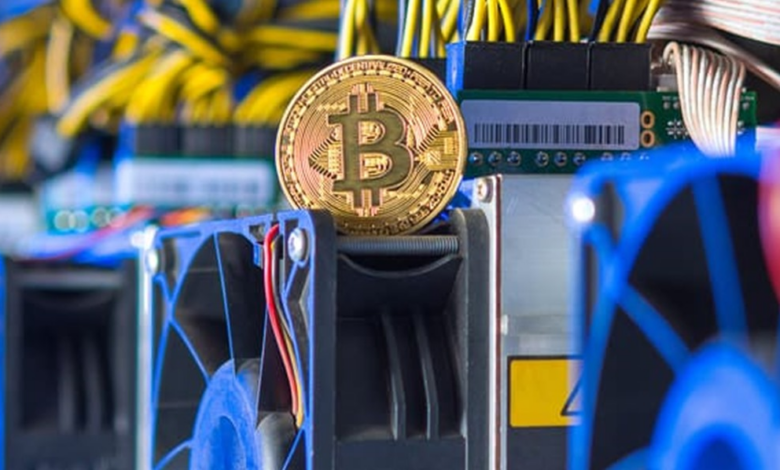Combating cryptocurrency mining in Abkhazia/JAMnews

Mining in Abkhazia
every winter, Abkhazia They face the same problem – a severe electricity shortage. The water level at the Inguri Hydropower Station decreases, energy production decreases, and an energy shortage appears. Half of this deficit is related to cryptocurrency mining.
However, all attempts made by the government to eliminate or at least control mining in Abkhazia have so far been unsuccessful. This is why.
Balcony with a surprise
In a residential area of Sukhumi, there is an ordinary nine-storey building. On the balcony, inside the protective casing, a device resembling a computer system unit buzzes. It is a cryptocurrency mining machine. It was bought by Beslan (name changed) in the summer of 2024 for 150,000 rubles ($1,500). At that time, Bitcoin was showing steady growth, there were no problems with energy supply in Abkhazia, and Beslan decided to try mining.
“It’s not the most powerful machine, but it was supposed to pay for itself in six months and start making profits after that. But that’s assuming there was electricity. I didn’t think we’d have power problems again. The situation seemed stable. It seemed like the authorities were “But I was wrong,” says Beslan.
In the fall, serious power outages began. But when the authorities called on the miners to stop, in an attempt to reduce electricity consumption, Beslan did not turn off his machine, convincing himself that it did not consume more energy than an oil heater.
“I have not turned on one of the heaters we have at home. My machine uses only 3.5 kilowatts. If you turn off the miner and leave the oil heater on, the overall situation of the power grid will not change,” says the unlucky miner.
But one day, while Beslan was at work, the police came to his apartment. Beslan’s mother opened the door and could not prevent the officers from entering and discovering the illegal equipment on the balcony. The machine was confiscated, an administrative violation report was filed against Beslan, and his home was photographed and shown on television in a news clip about the crime.
Miners beat the law
To combat cryptocurrency mining in Abkhazia, improve household electricity consumption through frequent power outages, and find funds to purchase electricity from Russia, a special energy security headquarters was created. It includes the Ministers of Energy, Internal Affairs, and Finance, a representative of the State Security Service, the Customs Committee, Energy Control, and Chernomorenergo. This organization also carries out raids on apartments and private homes.
Headquarters meets about every two weeks to review the data. Currently, Acting Prime Minister of Abkhazia Valery Baganba has instructed the Ministry of Energy to establish a legal framework that will allow the application of criminal sanctions to all miners.
Criminal liability for cryptocurrency mining in Abkhazia is currently only applied if the cryptocurrency farm consumes more than 300 kilowatt-hours. However, according to Interior Minister Robert Coyote, once a farm of this size is discovered, it does not have a single owner, but several, with power divided among them, resulting in only administrative penalties. Therefore, Cute proposes to introduce criminal liability for connection to the electricity grid.
It is believed that “the owner or lessee of the property where the miners are installed should bear criminal liability.”
However, as the Chairman of the Customs Committee of Abkhazia, Otar Khitsia, emphasizes, any legal procedures recorded on paper will not be effective without the determination to implement them.
“We don’t arrest or prosecute murderers, so what can be said about the miners?” Khetsia’s statements are skeptical.
It is believed that the most effective method is to confiscate and destroy all detected devices.
The confiscated mining equipment is stored in an energy control warehouse. Its employees say there is no longer room to store the machines, but there is no law allowing them to be destroyed.
“We can only burn these machines with a court order,” explains an energy watchdog employee.
Deadly conflict
In fact, the problem began several years ago when the Abkhazian government legalized mining, realized it was a bad idea, and was unable to reverse the decision.
So far, the law completely banning mining has only passed its first reading, and so far, liability only applies to illegal connections to the Chernomorenergo electricity grid. This means that those using separate generating capacities in small hydropower plants can mine freely.
The draft law has not yet undergone a second reading in Parliament. The previous attempt to discuss the matter at a committee meeting ended in tragedy – fierce mining opposition member and parliamentarian Adjur Kharazia shot dead his colleague Vakhang Golandzia and wounded another MP, Kan Kvarshia.
Eyewitnesses reported that the argument, which ended in shooting and killing, broke out over whether to completely ban mining in Abkhazia or allow cryptocurrency mining in small hydropower plants.
How many kilowatts are left until sunset?
Currently, Abkhazia lives on “humanitarian electricity aid” from Russia. The Abkhazian Cabinet of Ministers was able to secure 327 million kilowatt-hours of free electricity from the Russian Ministry of Energy. But this does not cover the energy deficit, and according to Timur Dzhingulia, head of Chernomorenergo, even with a six-hour power outage, electricity supply will last until about February 18.
By then, the Inguri hydropower station will not be ready to supply energy to the entire Abkhazia. This means that without additional supplies, the Republic may once again face an almost complete power outage. As it happened in December 2024. At the same time, free electricity is no longer expected, and there is no money for paid supplies.
Meanwhile, energy experts warn that even if mining is completely eliminated in Abkhazia, the region will not return to stable energy supplies during the cold season, with domestic and industrial consumption making up the other half of the deficit.
The terms, place names, opinions and ideas expressed in this publication do not necessarily reflect the opinions and ideas of JAMnews or its individual employees. JAMnews reserves the right to delete comments on posts that are deemed abusive, threatening, incite violence, or morally objectionable for any other reason.
Mining in Abkhazia
https://jam-news.net/app/uploads/2025/01/2d5f2fa983.png




